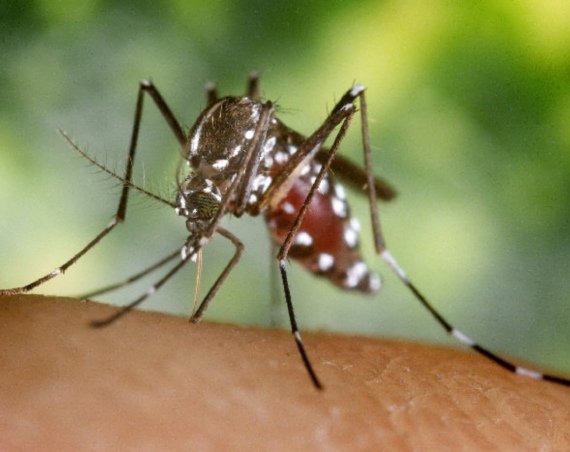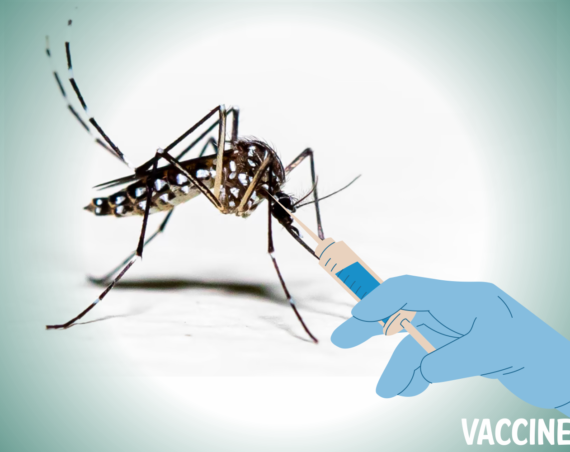Overview
SARS-CoV-2 or COVID-19 is a severe respiratory illness caused by a novel coronavirus that spreads through talking, sneezing, or coughing. India has been battling the COVID-19 pandemic since March 2020. The country has channelized the entire healthcare system to carry out multiple tests, epidemiological studies, provide emergency care, and vaccinate the whole population against the COVID-19 virus. However, with the entire healthcare force dedicated to a severe pandemic, there has been a setback in coping with, diagnosing, and treating other diseases such as dengue. The growing concern of two epidemics at the same time has raised concern among many scientists across different parts of the world. This is a significant concern because COVID-19 and dengue fever have overlapping symptoms, and the healthcare infrastructure of any developing or underdeveloped country will not be able to cope with such causalities. However, most people want to know whether a person suffering from COVID-19 can also have dengue simultaneously and vice versa? Through this article, we will try to look for an answer to the above question with the help of published case studies.
Case Study 1
In August 2020, an article published by Morgane Verduyn et al. in the PLOS Journal reported the case of an 18-year-old male who tested positive for COVID-19 and dengue at the same time. This was the first case of co-infection of dengue fever and COVID-19. The patient belonged to Reunion Island, a French department in the Indian Ocean, present in Africa. The patient had a fever, weakness, anorexia (eating disorder), and headache 17 days after returning to Reunion Island from Strasbourg. Upon visiting the physician with the above symptoms and undergoing the RT-PCR test, the patient was COVID-19-positive. Following the diagnosis, the patient was discharged from the hospital. The patient again visited the hospital two days after diagnosis and reported the presence of persistent fever (38.7°C), arthromyalgia, dyspnea with polypnea (respiratory rate of 24 breaths per minute), and itchy maculopapular rash. The patient was immediately subjected to a rapid dengue test which came positive. Analyzing the seriousness of the condition, the patient was hospitalized the same day. During hospitalization the patient had thrombocytopenia (platelet count 106 × 109/mL), leucopenia (1.7 × 109/mL), lymphopenia (0.6 × 109/mL), and neutropenia (1. ×109/mL). Along with this, the patient experienced retro-orbital eye pain and mild photophobia, with anorexia, nausea, and vomiting. RT-PCR test and test for IgG and IgM confirmed the virus serotype to be DENG-1. The patient was discharged after seven days from the hospital as the symptoms improved.
Case Study 2
Another article published in December 2020 by Maher Alharbi et al. in the Cureus Journal presented a case study that hypothesized that low sensitivity of the serological tests could indicate a potential co-infection of dengue fever and COVID-19. The case study was on a 58-year-old male with no past medical history and visited the hospital with the symptoms of fever, malaise, and generalized body aches. The patient reported having been exposed to multiple mosquito bites ten days before visiting the hospital. Four days before the visit, the patients had onset of the above symptoms. Upon diagnosis, the patient was found to have a low-grade fever( 37.70C) and severe thrombocytopenia of 17×109/L, white blood count (WBC) of 4.5×109/L, lymphocytes count of 2.5×109/L, and neutrophils count of 1.63×109/L. However, the patient’s respiratory rate, blood pressure, renal, and liver profiles were normal. The elderly patient tested positive for the dengue serology tests, including immunoglobulin G (IgG), immunoglobulin M (IgM), and nonstructural protein 1 (NS1) antigen test. The physicians took the nasal swab to check for COVID-19 as per the hospital protocol during COVID -19. The patient showed a positive COVID-19 PCR result in the screening swab but had negative IgG and IgM for COVID-19 in the sample done on the 12th day of post-symptoms. The patient recovered from dengue and was discharged from the hospital after seven days.
Researchers drew the inference from Case 1 and Case 2
In Case 1, we can see that the patient’s symptoms were related to dengue. However, signs like thrombocytopenia, elevated liver enzymes, and non-specific symptoms like fever, headache, abdominal pain, malaise, and nausea are found in COVID-19 and dengue patients. Thus, clinical diagnosis of dengue and COVID-19 without any lab test is difficult. The patient showed positive tests for dengue 17 days after coming to Reunion Island from Strasbourg, which is a more extended incubation period than the actual incubation period for COVID-19. However, since the patient was COVID-positive and showed severe symptoms of dengue, the researchers proposed a hypothesis from the case study that SARS-CoV-2 infection is more likely to give more severe symptoms in the case of co-infection. Since the clinical diagnosis of dengue and COVID-19 is complex, the researchers suggested conducting laboratory tests for both viruses in tropical areas where dengue and COVID-19 may coexist. Moreover, the researchers also proposed that more extensive studies need to be carried out to understand if such coexistence can lead to mortality,
In Case 2, we can observe that the patient was first diagnosed with dengue fever. During the subsequent screening, the patient tested positive for COVID-19. However, he received negative immunoglobulin G (IgG) and immunoglobulin M (IgM) test results on the 12th day after symptoms onset, which shows that the initial result was a false positive. The scientists have proposed multiple theories or hypotheses for such scenarios like:
- The possible role of angiotensin and angiotensin II converting enzyme (ACE2) in dengue and COVID-19
- Inappropriate way of swab collection and its contamination that leads to the generation of false-positive results of COVID-19 in RT-PCR
- Cross-section of other related viruses or other COVID-strains.
- Failure of dengue serological tests in countries that suffer from Dengue fever and COVID-19. The failure may be due to the cross-reaction of SARS-CoV-2 antibodies with DENV antigens used in the dengue serological tests causing misleading results.
- Due to the low sensitivity of serological tests, other viruses have been found to cause infections alongside COVID-19 in the same patient.
Thus the researchers concluded from case 2 that due to the low sensitivity of the serological tests, a potential co-infection of dengue and COVID-19 may exist. More studies are required to reach an affirmative decision.
REFERENCES
- Coronavirus disease 2019 (COVID-19). Accessed at
https://www.mayoclinic.org/diseases-conditions/coronavirus/symptoms-causes/syc-20479963 - Amid COVID-19, dengue triggers new challenge in India. Accessed at
https://www.aa.com.tr/en/latest-on-coronavirus-outbreak/amid-covid-19-dengue-triggers-new-challenge-in-india/2371613 - Verduyn M, Allou N, Gazaille V, Andre M, Desroche T, Jaffar M-C, et al. (2020) Co-infection of dengue and COVID-19: A case report. PLoS Negl Trop Dis 14(8): e0008476. https://doi.org/10.1371/journal.pntd.0008476
- Malibari A A, Al-Husayni F, Jabri A, et al. (December 07, 2020) A Patient With Dengue Fever and COVID-19: Co-infection or Not?. Cureus 12(12): e11955. doi:10.7759/cureus.11955





